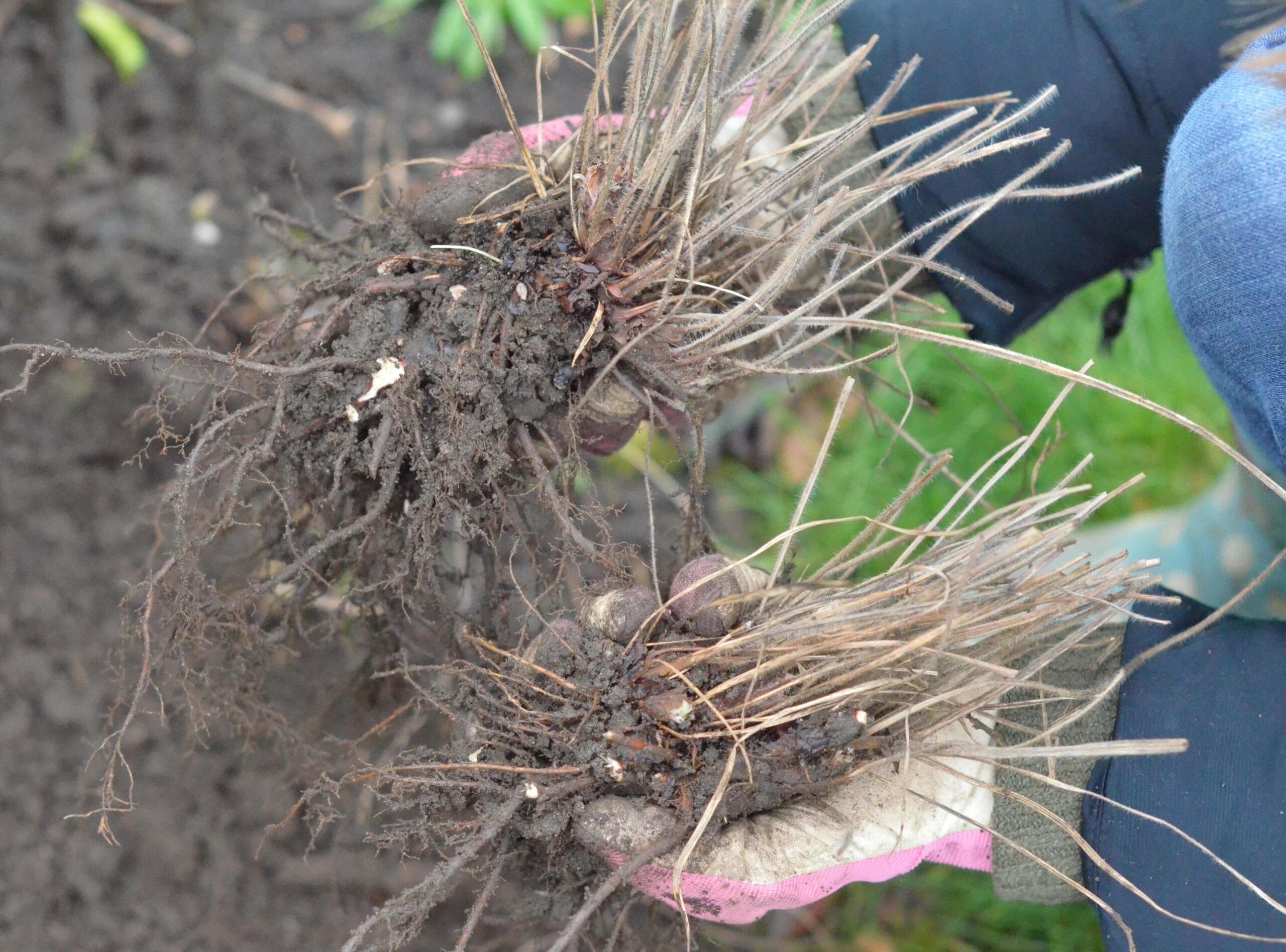[ad_1]


Do you like the sound of free plants for your garden? Of course you do!
This step-by-step-guide to dividing your existing perennial plants shows you how to make new plants for free. If you’re not sure what perennials are, check out this guide to annual vs. perennial plants.
Filling gaps in your garden without spending any money
Does your garden have holes in it at the moment? Not actual holes in the ground you understand, but holes nonetheless. Are the borders are looking bare, with whacking great patches of soil with nothing in them? Mine certainly are, and it’s not very uplifting to look at!
Gaps in your borders are perfectly normal during winter and early spring. Lots of plants are in their dormant phase, until the weather warms up and they start to put on new growth. You can use this as an opportunity to take stock, and make some changes that will plug those gaps. And the best part is you can do it without spending a penny.


How to get free plants by dividing
Lifting and dividing plants while they are dormant in late winter or early spring causes less stress on the plant, and gives them time to re-establish before the growing season starts. You can do this with pretty much any perennial plants (ones that die back and come again year after year), but make sure the original plant is a decent size before you start chopping it up.
Here’s how to make yourself new, free plants.


Start by lifting the plant carefully out of the soil; be careful not to damage the roots. Shake off loose soil around the roots, and trim off any dead stems.
If the plant has fibrous roots like this geranium, you can divide it with two forks, placed back-to-back near the plant’s middle. Ease the handles back and forth to separate the two sections.


For plants with fleshy roots, you’ll find it easiest to divide with a spade, or an old knife. I have been known to saw my hostas in half with an old bread knife, which works perfectly well!


If your original plant is a whopper, keep repeating this process. Each new section needs some healthy growth or bud and a decent section of roots. Don’t go too small, as it will take a long time for the plants to get established.
Planting your free plants


Try to replant your divisions as soon as possible so they don’t dry out. Make sure you leave enough space around each plant for it to grow into, and water at the base straight after planting. Keep your eye on them and water well until they are established.
This video has a good visual guide to dividing perennial plants:
This method of dividing perennials is a brilliant way to increase your plants without spending any money. It’s also great if you know anyone who is getting started on a new garden or border and needs some free plants. I love the idea of plants from my garden reaching out into new plots and giving other people enjoyment.


More gardening tips
For more gardening advice and projects, take a look at these posts.
Ideas for gardening on a budget
Easy flowers to grow from seed
How to get your garden ready for summer
Do you think you’ll be giving dividing a go this spring? Let me know what free plants you create!
Pin for later


[ad_2]
Source link
